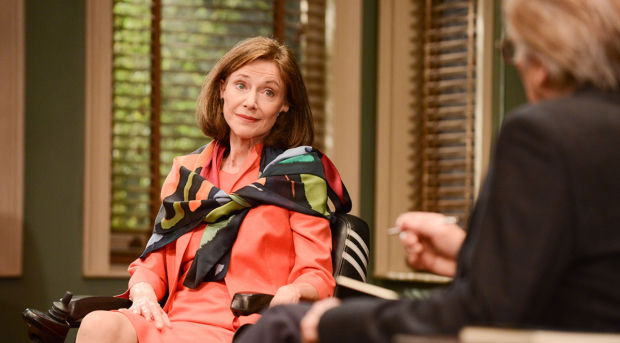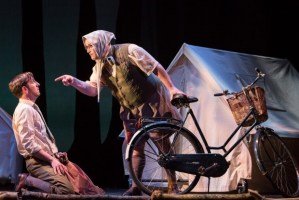Review: Duet for One (Richmond Theatre)
Tom Kempinski’s play, starring Belinda Lang and Oliver Cotton, continues to tour around the UK

© Robert Day
Jacqueline du Pré’s brilliant career as a cellist was cut short in the cruellest possible way. Multiple sclerosis first took away the feeling in her hands at the height of her fame, and the disease eventually left her completely disabled. She died in 1987 aged 42.
Her story, and the overwhelming emotional and physical adjustments that must accompany the acceptance of a progressive and paralysing illness, resonate throughout Tom Kempinski’s play, Duet for One.
However, in the programme notes, he explains that the play is actually based on his own struggle to suppress an inner life of anger and aggression that he feared was damaging, even dangerous, to those around him.
Whatever its background, the hugely successful play was written for his then-wife, Frances de la Tour, and premiered in 1980. It deals with the intimate relationship that builds between a world-class violinist, Stephanie, now stricken with MS, and her psychiatrist, Dr Feldmann.
Through the course of their encounters in his consulting room, Dr Feldmann delicately probes away at Stephanie’s brittle coating of resilience, peeling away her bravado to expose ugly truths about her background, her marriage and her self-esteem.
She has already confronted the worst of her situation – she can no longer play the violin, and will never do so again. Other people – including her husband – continue to make music eight hours a day. So with her great, immortal gift gone, what comes next boils down to a decision about whether to live or die.
Belinda Lang brings plenty of sardonic humour and sharp-witted snappishness to Stephanie. If the physical restraints of her condition are not entirely convincing, she communicates the immense frustration and anger that’s on a constant low boil. As the cool, reflective Dr Feldmann, Oliver Cotton gives a sensitive and intuitive performance.
But despite the outbursts of intense emotion, and the raw examination of human fears, there is a lack of connection between the two characters that leaves this a curiously unmoving production. It also comes to what seems like a startlingly abrupt end.
Lez Brotherston’s set is stunning, with its book-lined walls and elegant windows, and Ian Scott has lit the show with a subtle blend of shadow and sunshine. John Leonard’s sound design poignantly fills the theatre with the sublime music Stephanie once made.
If Robin Lefevre’s production doesn’t capture all the possible subtleties of the play, it remains a thoughtful and considered examination of a fundamental question – whether a life that has lost its meaning is still worth living.
Duet for One runs at Richmond Theatre until 28 October, before continuing its UK tour to Malvern, Chichester, Edinburgh and Chesil.















